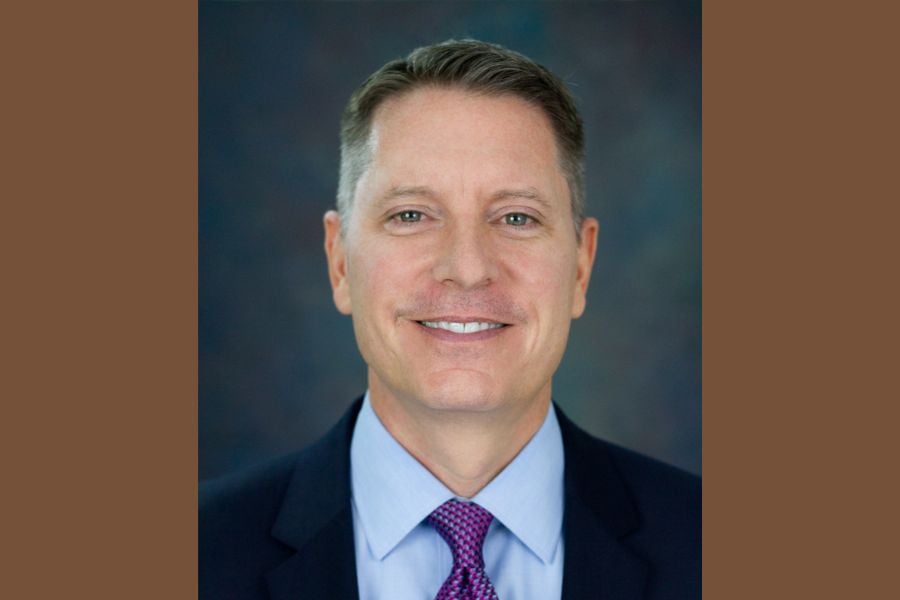

After a record year of pro bono financial planning in 2024, more firms should seriously consider adopting policies to encourage the practice within their own organizations.
That's the rallying cry that Jon Dauphine, CEO at the Foundation for Financial Planning, wants to shout at anyone willing to listen in the industry.
"We're going through a time of some real divisions across the US right now," Dauphine told InvestmentNews. "I think pro bono is a way people can really come together, and offer meaningful help to your fellow citizens."
The FFP is an independent charitable organization that's focused on promoting pro bono service in financial planning. As part of that, it forged a formal partnership with CFP Board in 2022 to open up pro bono volunteer opportunities, training, and resources to all CFP professionals.
Two years after that, CFP Board reported some significant wins. For 2024, it said 17,916 CFP professionals reported pro bono service, including 6,311 who logged at least 20 hours. Those efforts amounted to nearly 390,000 hours of volunteer service.
"Seventeen percent of all CFP professionals engaged in some type of pro bono activity," Dauphine noted. "Between '23 and '24, that's been a 16 percent growth rate [in the number of CFPs doing pro bono]."
One driver of that acceleration was a CFP Board resolution encouraging all CFP professionals to consider doing at least 20 hours of pro bono service yearly, he said. For its part, the FFP has consistently engaged with employer firms and nonprofits, helping to connect volunteers to where their expertise is most needed. The Covid-sparked adoption of virtual meetings has also unlocked countless opportunities for planners to connect.
"What we hear from volunteers is that there's a special meaning when you help somebody who's on that razor's edge, financially," he says. "One survey we did found that out of 1,200 CFPs, 77 percent see it as giving back to their profession."
Beyond CFP Board, the FFP supports the pro bono program at the Financial Planning Association with a yearly grant. Last year, the FPA reported 24 chapters doing pro bono work, serving some 5,000 individuals in workshops and 1,800 individuals in one-on-one engagements. There's also its partnership with the National Association of Personal Financial Advisors, which has programs to help wounded veterans and middle-income families trying to navigate college expenses.
Many first-time pro bono planners can feel anxious, as the individuals and families who need help can differ wildly from their usually wealthier clientele, Dauphine said. But because the issues they end up advising on are generally not as complex – the top three issues for pro bono clients are cash flow and budgeting, saving for emergencies, and managing consumer debt – they can develop their confidence and engagement skills in short order.
"We have webinars on different topics that might be relevant to a pro bono engagement," he said. "A lot of pro bono clients experience money shame and stigma, for example, so we have different training courses on how to address that by building trust and affinity."
Supporting pro bono work could also have implications for firms' advisor recruitment. According to the FFP's research, roughly half of all CFP professionals, including 55 percent of those under age 35, would prefer to be at a firm with a policy encouraging pro bono work. In a more recent survey of would-be financial planners, it found 83 percent would be "more likely" or "much more likely" to work somewhere with an encouraging pro bono policy.
"There's a big gap that we think firms on the cutting edge can fill and can position themselves as an employer of choice," Dauphine said. "For advisors, it can be a badge of a good culture."
Looking outside the wealth space, Dauphine pointed to the legal profession, where the American Bar Association has called on lawyers to do 50 hours of pro bono service a year. A number of large law firms backed that call, which he said has led to a boom in pro bono legal service.
"We're not there yet," he said. "But the more employers and firms buy into and support this, the more it will flourish and become a norm."

Summit Financial unveiled a suite of eight new tools, including AI lead gen and digital marketing software, while MassMutual forges a new partnership with Orion.

A new analysis shows the number of actions plummeting over a six-month period, potentially due to changing priorities and staffing reductions at the agency.

The strategic merger of equals with the $27 billion RIA firm in Los Angeles marks what could be the largest unification of the summer 2025 M&A season.

Report highlights lack of options for those faced with emergency expenses.

However, Raymond James has had success recruiting Commonwealth advisors.
Orion's Tom Wilson on delivering coordinated, high-touch service in a world where returns alone no longer set you apart.
Barely a decade old, registered index-linked annuities have quickly surged in popularity, thanks to their unique blend of protection and growth potential—an appealing option for investors looking to chart a steadier course through today's choppy market waters, says Myles Lambert, Brighthouse Financial.
